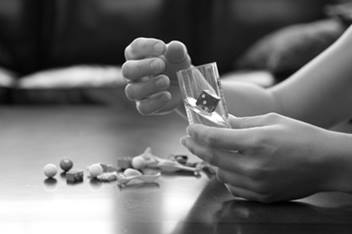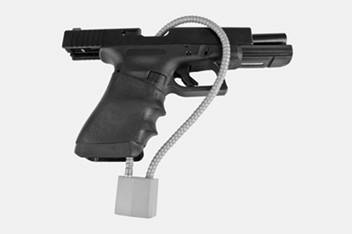Cooking Safety
Cooking is a common cause of injury in the home and the leading cause of home fires. Stoves, ovens, toaster ovens and microwaves can all be sources of kitchen fires. When cooking in the kitchen, parents need to know how to prevent fires and what to do if a fire starts.
Facts about Cooking Fires
- According to the US Fire Administration, US fire departments responded to more than 183,000 home fires that involved cooking equipment in 2016.
- These fires caused 170 deaths and nearly 3,500 injuries.
- Most of the home cooking fires involved stoves and occurred when cooking food was left unattended.
What to Do If a Kitchen Fire Starts
- If a small fire starts in a pan, do not try to move it.
- Use an oven mitt to carefully slide a lid over the burning pan. Turn off the heat and leave it there until it has completely cooled.
- Never throw water on a grease fire.
- If a fire starts in the oven, toaster oven or microwave, turn off the heat and keep the door shut.
- Replace the appliance or have it serviced before using it again.
- Call the fire department to report the fire.
- Do not try to fight large fires on your own. Get out of the house and call 9-1-1.
Cooking Safety Tips
- Always stay in the kitchen while using the stove. Turn off the stove if you leave the room.
- Designate a “kids-free zone” that is at least 3 feet away from the stove.
- Always turn pot handles toward the back of the stove and use the back burners whenever possible.
- Roll up sleeves before cooking. Loose-fitting clothing can catch on fire.
- Clean the stove, oven and burners regularly to prevent grease buildup.
- Keep items that can catch on fire, such as dish towels and pot holders, away from the stove.
- Plug cooking appliances directly into an outlet. Never use an extension cord for a cooking appliance.
- Tuck appliance cords out of reach of children.
- Only use microwave-safe containers to heat things in the microwave.
- If a smoke alarm sounds during normal cooking, open a door or fan the area. Do not disable the smoke alarm or take out the batteries.
Burns and Scalds
Burns can be caused by contact with hot liquids or steam (these are called scalds), or by contact with hot objects, electricity or chemicals. On average, 120,000 children younger than 21 are treated in hospital emergency departments for burn-related injuries each year.



